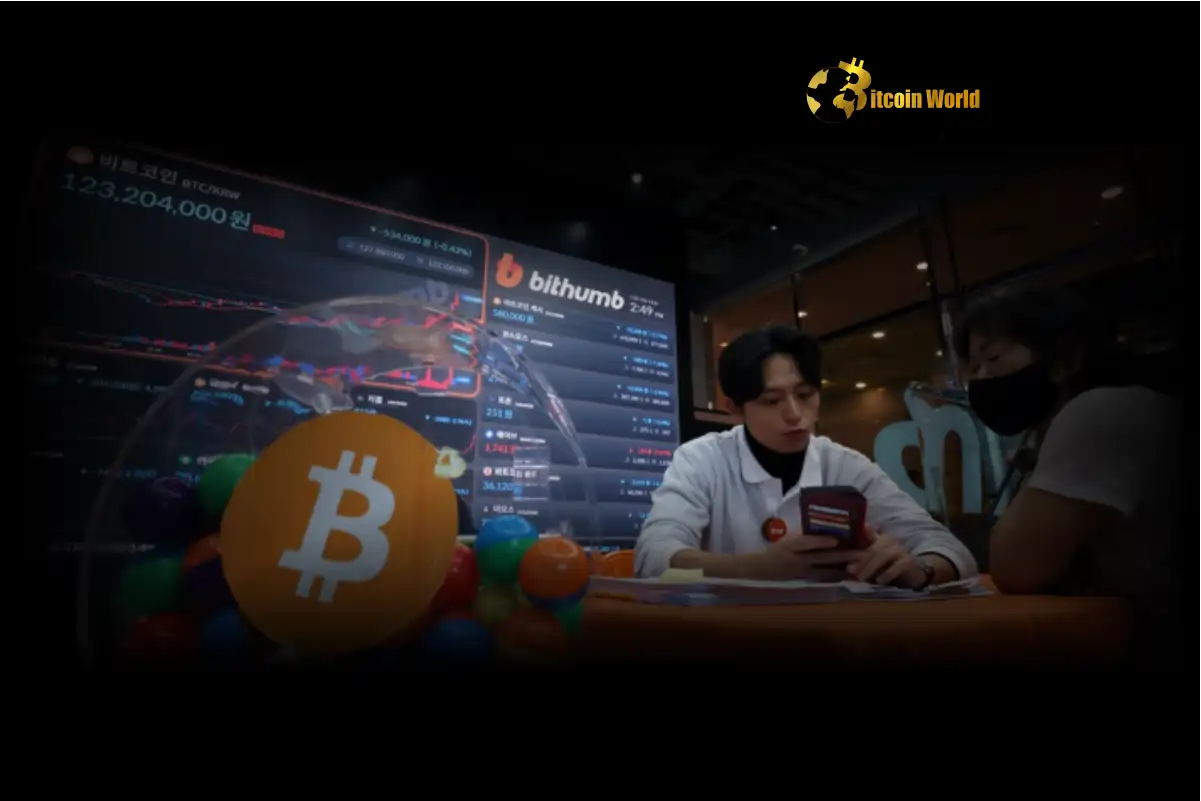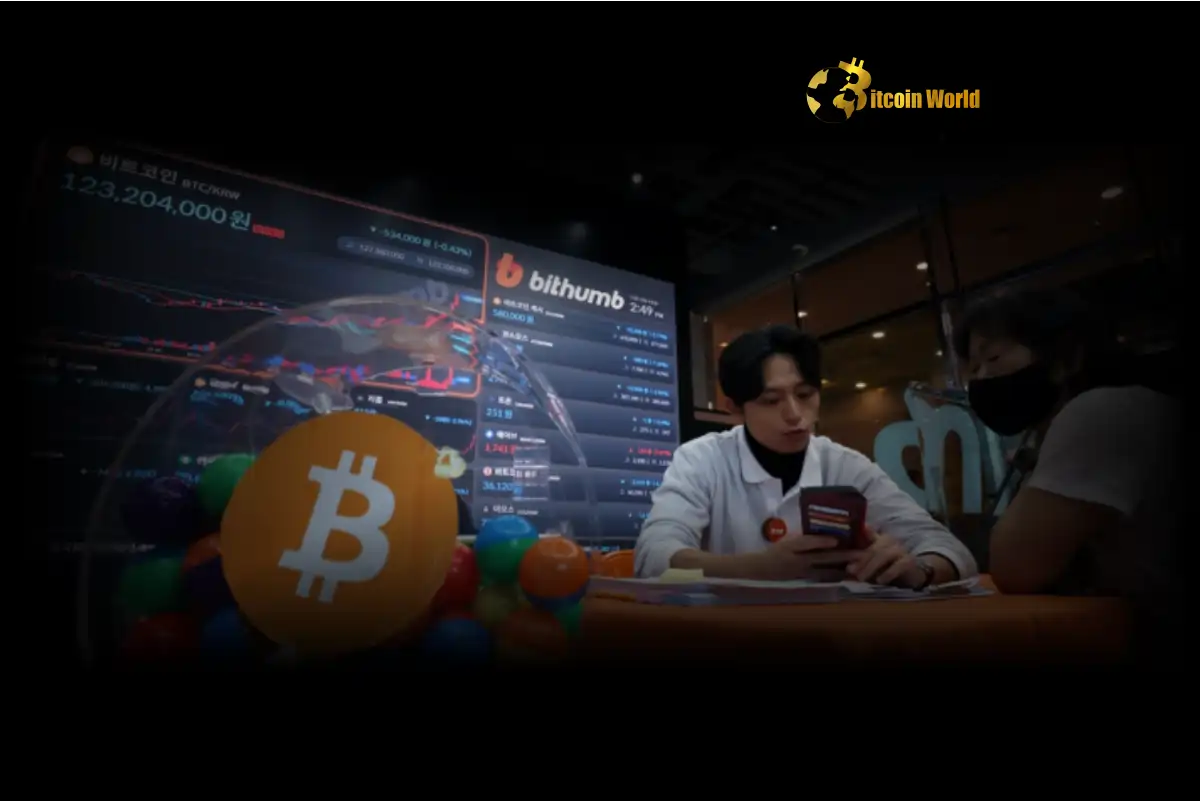BitcoinWorld

Alarming Surge: South Korea Crypto Suspicious Trading Dominated by Young Investors
The world of cryptocurrency trading is dynamic and fast-paced, but it also comes with its share of risks and regulatory scrutiny. A recent report from South Korea highlights a concerning trend regarding suspicious trading activities, particularly involving a younger demographic. If you’re involved in the South Korea crypto market, or interested in how regulations are impacting trading behavior globally, this information is crucial.
What Did the FSS Report Reveal About Suspicious Crypto Trading?
South Korea’s Financial Supervisory Service (FSS) plays a key role in overseeing financial markets, including the burgeoning crypto sector. On May 21, the FSS released findings that shed light on patterns of suspicious crypto trading activities flagged by domestic exchanges between July and December 2023. The report, cited by the Seoul Economic Daily, revealed a striking statistic: a significant majority of the individuals flagged for these suspicious behaviors belonged to the younger generations.
Specifically, the report indicated that 52.5% of investors identified for suspicious trading activities were in their 20s and 30s. This percentage underscores a notable concentration of potentially problematic trading behavior within this age group compared to older demographics.
How Does the FSS Define Unfair or Suspicious Trading?
Understanding what constitutes ‘suspicious’ or ‘unfair’ trading is essential for any investor navigating the South Korea crypto market. The FSS provided examples of the types of activities they are monitoring. These aren’t just simple trading errors; they involve deliberate strategies aimed at manipulating the market.
Examples of unfair trading practices highlighted by the FSS include:
- Using Application Programming Interfaces (APIs) to automate the submission of large, high-priced buy orders.
- Timing these large orders strategically, such as just before or immediately after price limits are reset on an exchange.
- Executing such orders during specific periods when deposits and withdrawals might be paused, which can limit market liquidity and make prices more susceptible to manipulation.
The primary goal behind these tactics is to artificially inflate the price of a virtual asset and boost its trading volume. This creates a false sense of high demand, allowing the manipulating traders to sell their holdings at an inflated price to unsuspecting investors drawn in by the apparent market activity.
Why Are Young Crypto Traders More Involved?
The report’s finding that a majority of flagged traders are young crypto traders in their 20s and 30s prompts the question: why this demographic? Several factors could contribute to this trend:
- Tech Savviness and API Use: Younger traders are often more comfortable with technology, including using APIs for automated or algorithmic trading strategies. While API use itself isn’t suspicious, employing it for manipulative tactics is.
- Higher Risk Tolerance: Younger investors may inherently have a higher tolerance for risk and may be more inclined to engage in aggressive trading strategies, including those that push ethical or legal boundaries.
- Influence of Online Communities: Social media and online trading communities can sometimes promote get-rich-quick schemes or discuss methods that verge on market manipulation, potentially influencing less experienced traders.
- Desire for Quick Gains: Economic pressures or the desire for rapid wealth accumulation might lead some young traders to pursue strategies focused on short-term manipulation rather than long-term investment.
It’s important to note that this report flags suspicious activity, not necessarily proven illegal activity in all cases. However, the concentration within this age group is a significant data point for regulators and exchanges.
How Does South Korea Crypto Regulation Impact These Activities?
The landscape for virtual assets in South Korea has been evolving, with significant steps taken towards stricter oversight. A key development mentioned by the FSS is the implementation of the Act on the Protection of Virtual Asset Users, which took effect in July 2023. This legislation is a cornerstone of crypto regulation in the country and provides the legal framework to address unfair trading practices.
The FSS warning is clear: since the Act’s implementation, engaging in such unfair trading activities may now be subject to criminal prosecution. This represents a significant shift from previous periods where the regulatory framework was less defined. The Act empowers authorities to investigate, penalize, and prosecute individuals and entities involved in market manipulation, insider trading, and other fraudulent activities within the virtual asset market.
What Does This Mean for the South Korea Crypto Market?
This report and the accompanying warnings from the FSS signal a stronger regulatory stance on market integrity in the South Korea crypto space. The focus on suspicious crypto trading, particularly among young crypto traders, indicates that regulators are actively monitoring behavior that could harm other investors and undermine confidence in the market.
For legitimate traders and investors, this increased scrutiny is ultimately a positive step towards creating a fairer and more transparent market. However, it also means that traders need to be acutely aware of what constitutes acceptable and unacceptable trading practices under the new crypto regulation.
Actionable Insights for Investors
Given these developments, what should investors in the South Korea crypto market consider?
- Understand the Rules: Familiarize yourself with the Act on the Protection of Virtual Asset Users and what constitutes unfair trading. Ignorance is not a defense.
- Be Cautious of Advanced Strategies: If you’re considering using APIs or automated trading, ensure your strategies are based on legitimate market analysis, not manipulation tactics.
- Protect Yourself: Be wary of pump-and-dump schemes or assets showing sudden, inexplicable price surges or volume spikes, especially if promoted heavily in online groups.
- Choose Reputable Exchanges: Trade on exchanges with robust compliance and monitoring systems that actively work with regulators like the FSS.
- Seek Knowledge: Continuously educate yourself about market dynamics and regulatory changes.
Conclusion
The FSS report on suspicious crypto trading in South Korea, highlighting the significant involvement of young crypto traders, is a stark reminder of the ongoing challenges in ensuring market integrity. With strengthened crypto regulation now in effect, activities previously operating in a grey area are firmly under the regulatory spotlight and potentially subject to criminal prosecution. This focus on identifying and addressing unfair practices is a critical step for the maturation and long-term health of the South Korea crypto market, aiming to protect investors and build a foundation of trust.
To learn more about the latest crypto market trends and South Korea crypto regulation, explore our articles on key developments shaping crypto regulation and market integrity.
This post Alarming Surge: South Korea Crypto Suspicious Trading Dominated by Young Investors first appeared on BitcoinWorld and is written by Editorial Team





